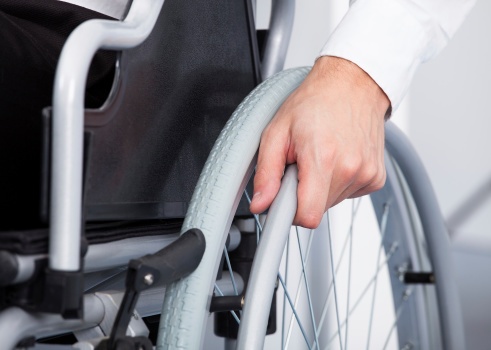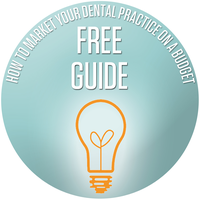
As a healthcare professional, you know that the environment and preparation can shape a patient’s experience. International Day of Persons with Disabilities, celebrated in December, is a great time to think about small, practical changes that make your practice more inclusive.
In the U.S., more than 61 million adults—about one in four— live with a disability, showing how important accessible dental and vision care is.
Whether you’re updating your current approach or starting fresh, here are easy, patient-focused ideas that won’t break the budget.
Key Takeaways
- Accessibility matters: Physical and sensory accommodations improve comfort and care.
- Training matters: Give your team tools to support patients with empathy and confidence.
- Know the Rules: Stay informed on ADA guidelines and coverage options like Medicaid.
- Small changes, big results: Even simple upgrades can make your office more welcoming.

ADA Compliance & Accessibility: Start with the Basics
Accessibility starts before treatment—at the door, front desk, and waiting area. Simple improvements can remove barriers that keep patients from scheduling or completing care.
Why it matters: About 30% of adults with disabilities say their dental office doesn’t offer accommodations. The ADA provides guidance to help you improve access.
Easy Accessibility Upgrades
- Redesign your waiting area: Create open pathways for wheelchairs and walkers; choose chairs that make it easy to sit and stand up.
- Space for assistive devices: Make sure exam rooms have room for wheelchairs and mobility aids.
- Clear signage: Simple signs help patients find their way without stress.
- Handrails: Add them in hallways, restrooms, and near chairs for extra support.
- Adjustable chair height: Helps patients with mobility challenges feel more comfortable.
Did you know? One in four adults with a disability report delaying or missing care, including dental care. Removing physical barriers can help change that.

Worthy Investments for Accessible Care
Ready for bigger upgrades? Consider:
- Adjustable sinks: Make hygiene areas usable for everyone.
- Wider doors & ADA push buttons: Easier entry and exit for wheelchair users and caregivers.
- Wheelchair recliner: Allows treatment without transferring from a wheelchair, reducing discomfort and risk.
These changes often pay for themselves through better patient satisfaction and positive word-of-mouth.

Sensory & Communication Support
Not all disabilities are visible. Patients on the autism spectrum, or those with anxiety or other developmental conditions, may need sensory accommodation and clear communication.
Practical Ideas
- Pre-visit orientation: Invite patients for a quick tour to reduce stress.
- Comfort tools: Offer headphones, sunglasses, or weighted blankets to help patients feel calm.
- Caregiver involvement: Encourage caregivers to stay during treatment for reassurance.
Why it matters: Adults with disabilities are more likely to seek dental care in the ER—a sign that routine care can feel overwhelming. Sensory-friendly options help patients stay engaged.

Helping Patients Navigate Coverage & Policy
Coverage affects access. Medicaid dental benefits for adults with intellectual and developmental disabilities vary by state , from full benefits to emergency-only coverage. Knowing local rules helps you guide patients toward care.
Tip: Offer a simple handout or online resource with state-specific coverage details, transportation options, and community clinics. Patients appreciate practical guidance—even if you’re just pointing them in the right direction.
Continuing Education: Keep Learning and Improving
Providing accessible care requires ongoing effort. Dental schools and professional associations offer courses on inclusive care and patient communication. For example, the University of Pennsylvania provides CE programs on treating patients with special needs.
FAQs
Q1: Why is accessibility important in dental and vision care?
Accessibility supports better health outcomes, reduces missed appointments, and meets ADA standards—all while improving patient satisfaction.
(Sources: ADA; CareQuest SOHEA 2025)
Q2: What are cost-effective ways to improve accessibility?
Start with clear signage, handrails, and open layouts. These low-cost changes make a big difference.
(Source: All Things Inspector)
Q3: How can providers support patients with sensory sensitivities?
Offer headphones, dimmable lights, and weighted blankets. Pair these with pre-visit orientation and calm communication.
(Sources: CareQuest SOHEA 2025; Inside Dental Hygiene 2025)
Q4: Are there continuing education resources for disability-inclusive care?
Yes. There are programs that focus on caring for patients with disabilities. For example, the University of Pennsylvania offers CE on equitable oral health.
While it may seem daunting, making thoughtful changes and providing sensory-friendly care can make your dental or vision office more welcoming to everyone. Accessibility isn’t just about compliance. It’s about compassion, connection, and practical steps that help patients feel comfortable and cared for.
Interested in joining the Solstice dental network?
Partner with a trusted leader in dental benefits and unlock access to thousands of potential patients. Our dedicated Provider Relations team is here to guide you every step of the way.
📞 Call: 1.877.760.2247 (Option 2)
📧 Email: providerrelations@solsticebenefits.com



